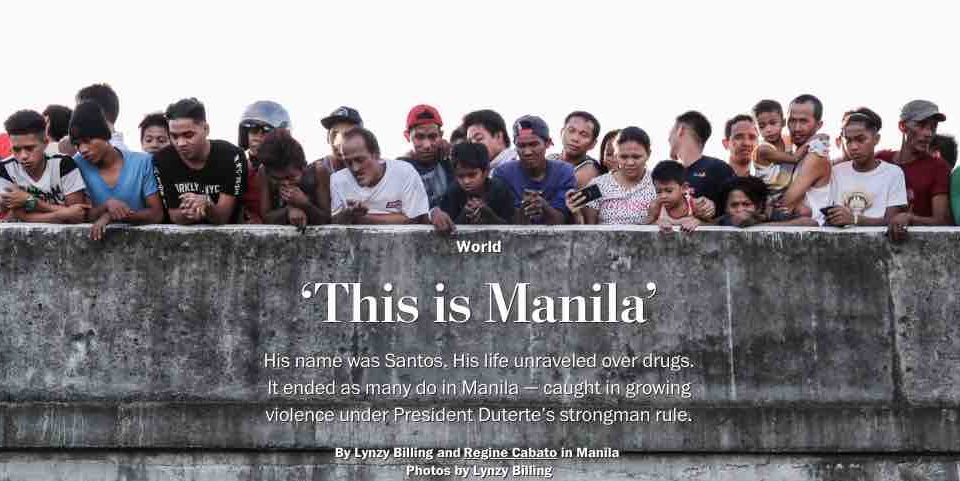A story about Manila was front and center on The Washington Post‘s Feb. 25 front page, but the Philippine Embassy was not pleased by how its beloved city was depicted.
In a statement shared on Twitter earlier today, the Philippine Embassy in the U.S. said the story was a “hasty generalization that has no foundation in reality.”
The scathing complaint also alleged that the article was hiding “behind the guise of journalism” and aims to discredit the Philippines in the international community.
READ: Statement on @washingtonpost article pic.twitter.com/2n1p8ksyIj
— Philippine Embassy in the USA (@philippinesusa) February 26, 2019
Titled “This is Manila,” the feature was also published in The Washington Post‘s website on Feb. 22, Friday (U.S. time). It tells the story of Ferdinand Jhon “Dingdong” Santos, a shabu (meth) addict who was found dead in Manila’s Pasig River one afternoon with his arms and legs tied with a rope and his head wrapped in packing tape.
The story also discussed the many unresolved cases linked to the thousands of deaths that have occurred since the war on drugs started in 2016, many of which, the Human Rights Watch said, are “either directly or tacitly sanctioned by the government as part of its crackdown on drug use.”
“The names of those killed in Manila and elsewhere are rarely known beyond their families and friends. Their stories — and, by extension, the stories of Manila’s dark side — are seldom told,” the article reads.
The Philippine Embassy said that the feature does not paint a complete picture of Manila. It cited surveys from pollsters Social Weather Stations and Pulse Asia that show how a majority of Filipinos are satisfied with and support the government’s anti-drug campaign.
It said that crime in the Philippines has gone down by 30 percent from 2015 to 2018, according to police data. The embassy also said that erring police officers suffer consequences like suspension, demotion, and dismissal.
While this is true, deaths in anti-drug operations continue, most under the justification that the drug suspects “fought back” authorities. According to police data from December, more than 5,000 people have died in anti-drug operations. However, human rights advocates believe the number could be more than double this.
This is not the first time the Duterte administration has spoken out against an article depicting the Philippines in a bad light.
In December 2017, then-Presidential Spokesperson Harry Roque called the Reuters story “Davao Boys” “bad journalism” for not giving the administration enough time to respond to the allegations. Roque also admitted that he had not read the story.
The piece is about a group of police officers from Davao and how they “racked up kills” in the drug war.
Duterte and his supporters have also repeatedly slammed local media for being critical of the government. Filipino journalist Maria Ressa was even arrested for cyber-libel earlier this month, a move many believe was politically motivated.
The Philippine Embassy ended its statement about The Washington Post article by saying that the country “upholds the rule of law and human rights in all its endeavors.”




